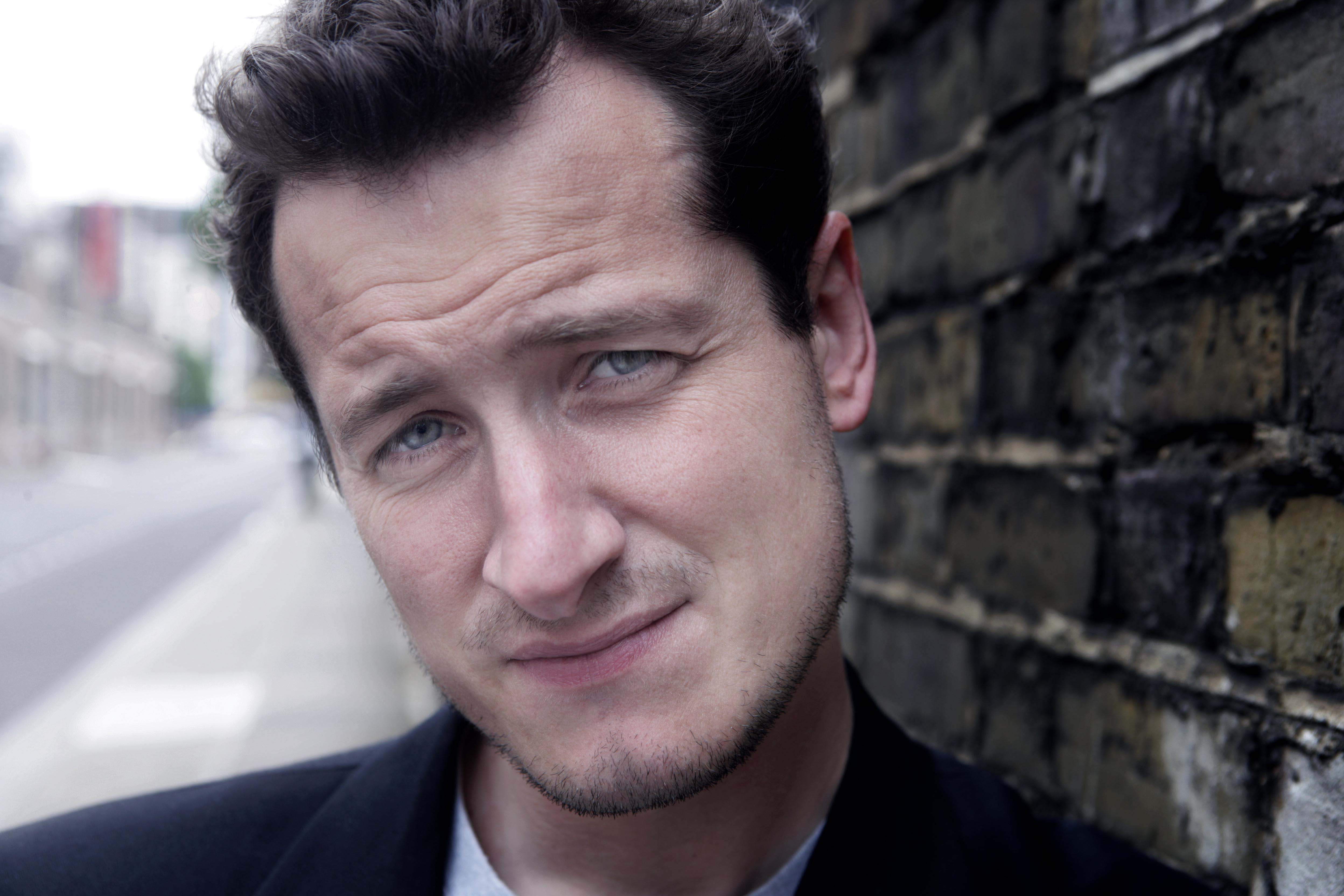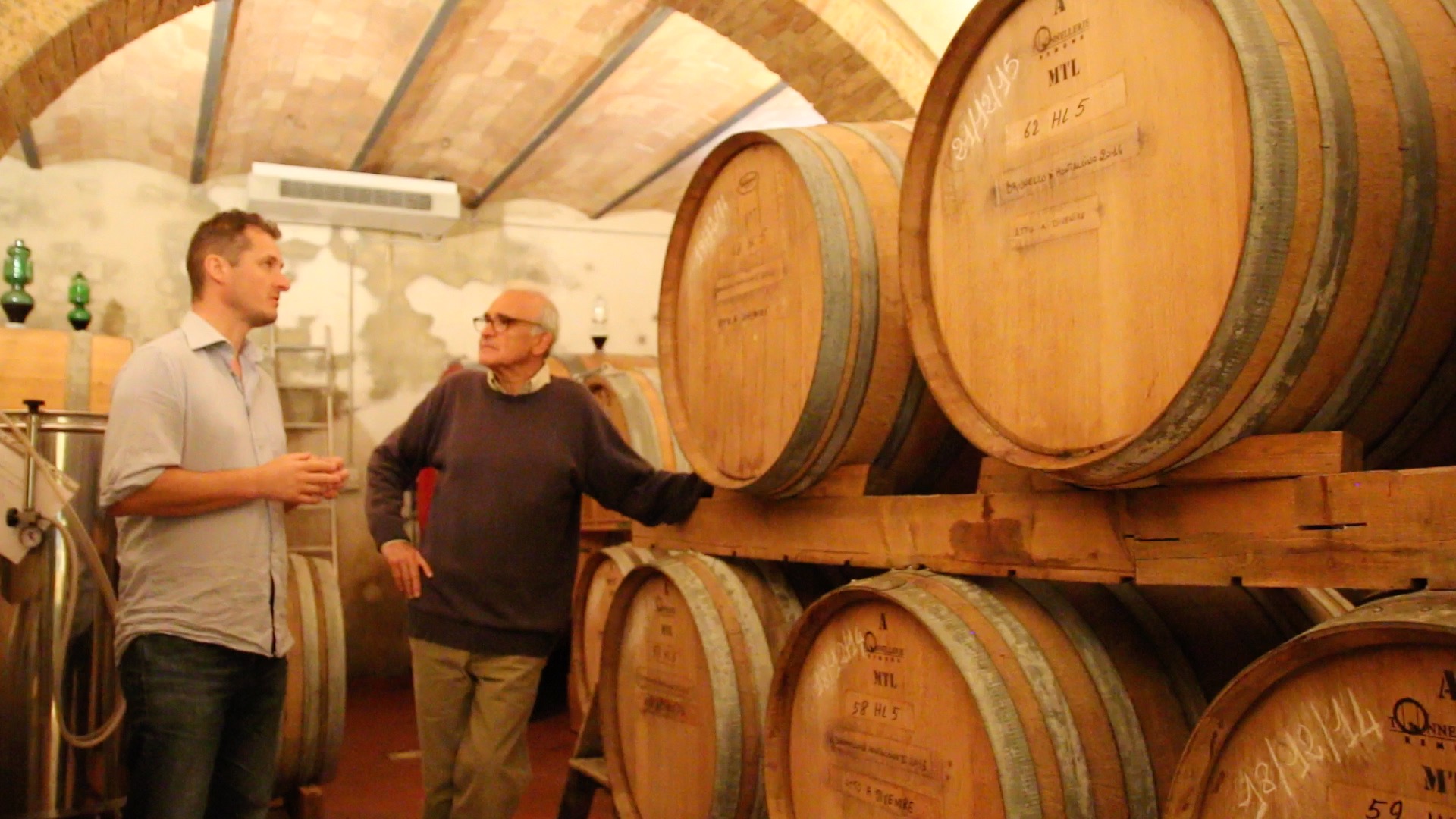
Francesco Leanza, a chemical engineer by trade, fell in love with Montalcino through a series of vacations in the region and purchased the land that became Podere Salicutti in 1990. In 1994 Leanza planted grapes and began the process of becoming the region's the first organic winemaker. Grapes are harvested by hand and are fermented in open-top stainless steel tanks with natural yeast. The Salicutti estate comprises 11 acres, just over four of which are planted to vines.
The wines are pure, mouthwateringly smooth, with wild, complex, and vibrant flavours that are immediately appealing. Yet they also develop beautifully with age in the bottle, too. Ever since its inception, Salicutti has been one the very best Brunello producers.
Monty Waldin discusses his journey in organic winemaking and his thoughts on the evolution of Brunello.
Monty Waldin: Francesco, how did you became the owner of Salicutti?
Francesco Leanza: I lived in Rome and I traveled as a tourist. I came to Montalcino because I was attracted to this area. When I arrived I was completely fascinated by this area, completely captivated by the amazing nature and beauty of this place. So I decided to spend a lot more time in this region.
After two years of spending my holidays here, I decided to buy something and then, later I analyzed the possibility of retiring from my professional job and living here and doing the typical activity in Montalcino, which is wine production, winemaking, of course.
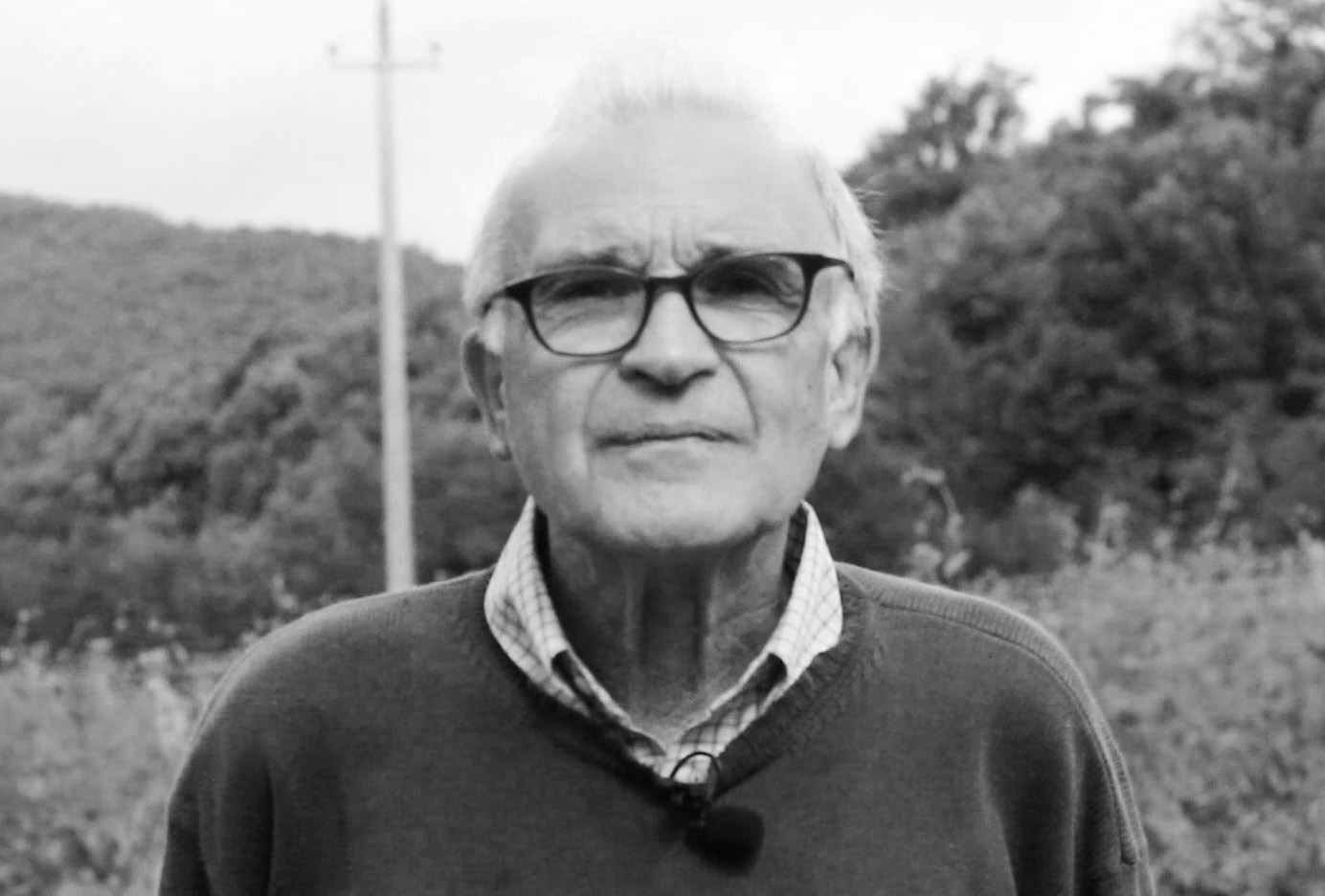
Why did you buy this particular property?
I bought Salicutti because I was looking for a house just for the holidays and somebody showed me this property, which was completely abandoned. When I arrived here, I discovered something that I judged unique in Italy and maybe unique in the world. I discovered the position, the light, everything was exceptional. Even if I looked for something smaller and this was almost a medium size property, I decided to buy this.
Francesco, what is special about Salicutti, perhaps the soil, the altitude? Why is it such a good place to grow high quality wine?
I wasn't a technician about winemaking and wine growing, but when I arrived here I felt that this area was exceptionally suited for wine growing. Then later I discovered when I was studying the soil that I got the knowing, no?
The knowledge.
The knowledge of the soil. I could understand the richness of the variety of the soil. In fact by going deeper into the study of the soil, I discovered we have basically two different kinds of soil.
The east side of the property is characterized by a typical rock of the south eastern area of Montalcino. This special rock called the "Alberese" or "formazione di Santa Fiora,” is a sedimentary rock, very fragile, 86 million years old, it’s a rock which has been formed on the bottom of the sea, far from here.
The other type of soil is on the western side of the property. It is a little bit younger geological formation, characterized by rock, [but] less structured, with clay and calcareous [limestone], and so the two different kinds of soil produce two different kinds of vines and, wines of course. This is the reason for my choice, of making different selections from different origins of the soil.
The first area reaching rock is the Brunello selection, which produces a more complex structured, concentration in alcohol in extraction, and the other, a [wine which is] more rich in aromas, but fruity, fruity taste and fruity aroma too. Because the clay, the base of clay, produces a more fruity grape, it is more suitable for a younger wine, like the Rosso di Montalcino.
I have this choice, which produces cru [meaning a wine from a single site or in this case one or other of the two main soil types here] wines for Brunello di Montalcino, as well as for Rosso. Cru for Rosso di Montalcino and cru for Brunello di Montalcino.
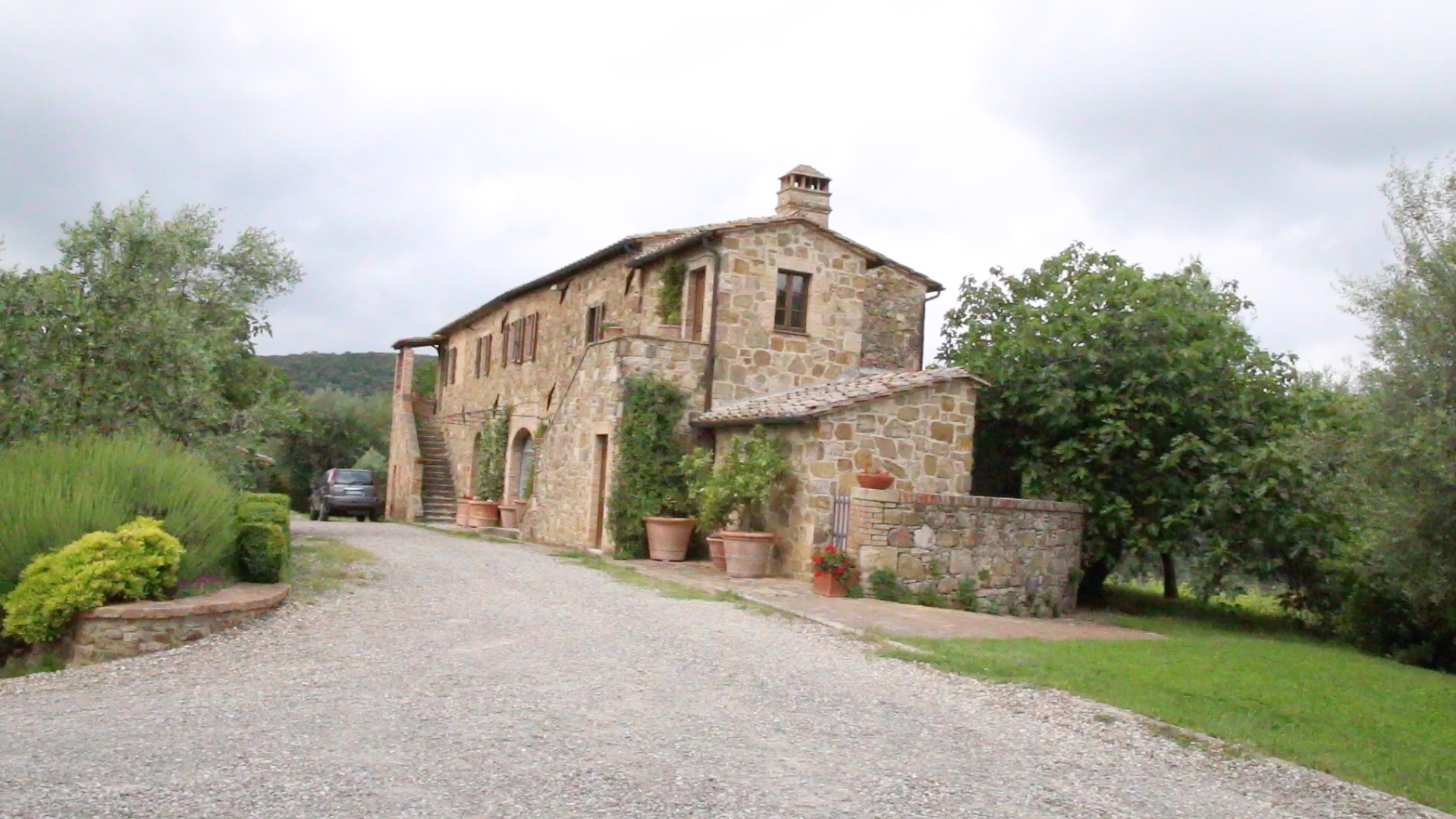
Your approach is a little bit like the Burgundians, the Monks, making certain style wines from certain styles of soil, very individualized. And your reputation as one of the best producers in Montalcino is due to your attention to detail. Why has Brunello become so famous? When you came here it was virtually unknown, twenty years ago. Why has it become such a famous wine on planet wine?
I don't know why, but I've observed a fascination for the history of Brunello is perhaps the most important reason for the fame for Brunello.
For me the single grape wine [varietal wines, wines made from a single grape variety like Merlot or Chardonnay] is more attractive than blended wine. It happened similarly in Burgundy with Pinot Noir, or with other wines all over the world. Great wines, the most recognized wines for me, and also for my personal taste, my personal feelings, is a single grape wine. It is always more attractive, because it is less influenced by man and more linked to the natural expression of the soil and of the terroir in general.
Okay.
This is one reason [why Brunello–which is made only from 100% Sangiovese grapes, has become] the unique wine in Tuscany made by a single grape. This is another parameter which also produces a fascination of the wine. A difficult wine [because Brunello is not easy to drink when it is young], a difficult grape [the Sangiovese or ‘Brunello’ grape is fragile, and disease-prone] and a great result in quality. All these charaterizations can produce, or could have resulted in the fame all over the world for this wine.
Why did you decide to become organic right from the beginning? You're the first in Montalcino to be organic.
I was the first! When I arrived here and looked at the natural beauty, it forced me to make this decision. Because nature is so wonderful and special, nature shouldn't be spoiled. It shouldn't be spoiled at all. It was absolutely necessary to keep clean this nature. The second element is the ...
The work of the man.
Yes, the work of the man. Because the beauty of nature comes by two things, the nature universal law which is the the path to the balance. The balance is the law of the law.
The second element is the work of the man, which makes this area very, very authentically nice, beautiful.
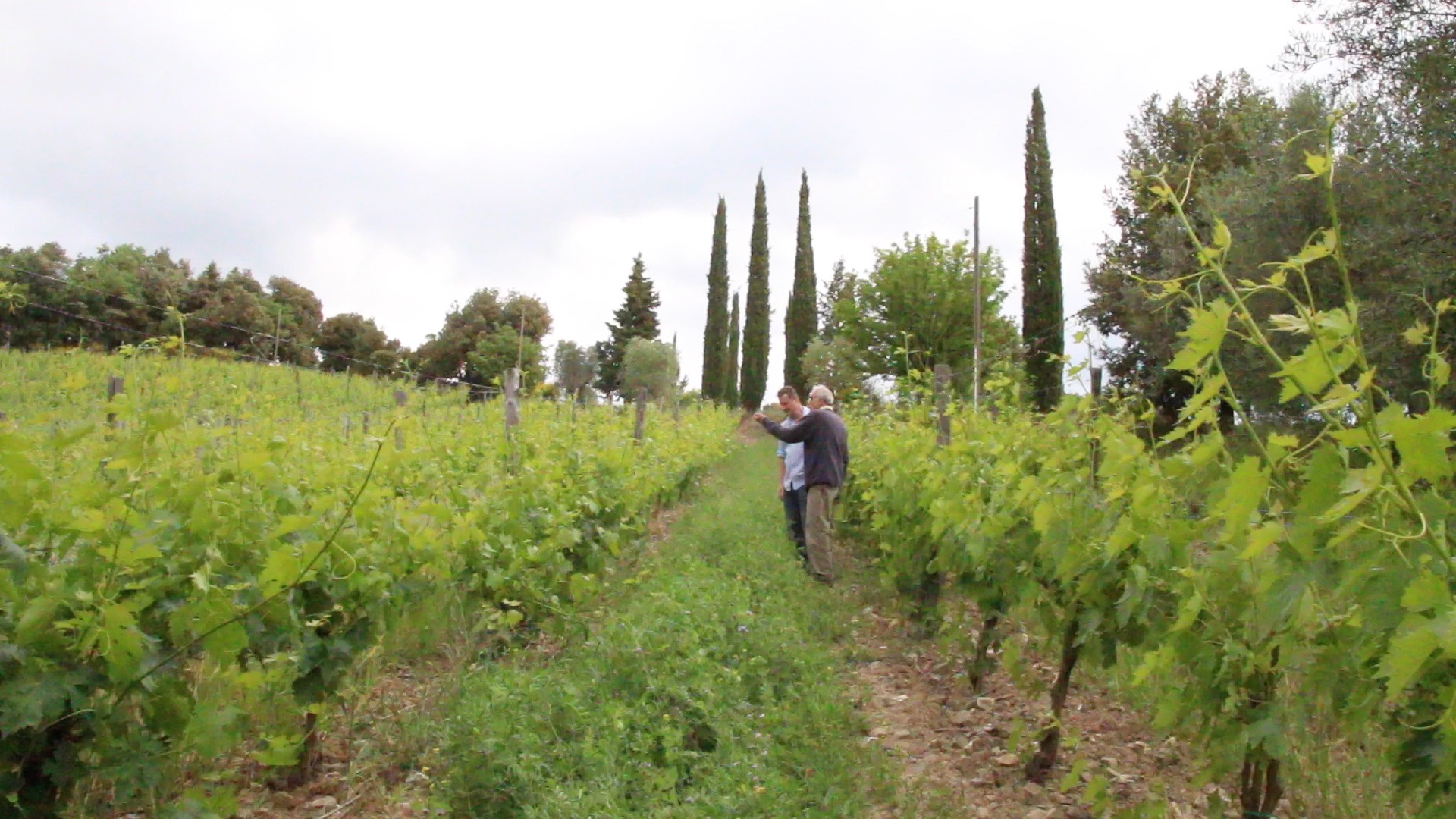
Are you saying that when man and nature work in harmony together, you get better results?
Yes, of course. This was necessary for me, not an alternative to my choice. Also the philosophy of my organic choice is to enhance the work of man. My choice is not a faith in a book or of a man. My organic choice is not religious, the opposite of religious.
Was it a practical choice?
No. We say in Italian "laico"—not religious, not a matter of faith, not about faith, not linked to a faith in a book. We have the Catholic faith, which is a religion of a book.
"Laico" is agnostic [or, more correctly, secular]. If the reason why you chose organic was not a spiritual choice, what kind of choice was it?
Is agnostic.
Agnostic, it wasn't like you weren't being a religious fundamentalist about organic, it was a practical tool, to make better quality.
Yes exactly, because my choice also relates to the agronomic science —it is very important.
That's what your first job was, wasn't it?
I was a chemist and so I think about the organic science, which is part of the work of man, because the work of the man is manual work, which is very important for vine growing, but is also very important for the mental side, mentally.
The mental work of man, so the "ensemble".
Together.
Together, the manual [work] and the brain of man makes the true work a unique work, and this is important.
Otherwise I've a passion for classical culture and for humanistic culture and my choice, I define my choice as bio-humanistic, not bio-dynamic. Because nature is by itself bio-dynamic, nature doesn't need any different rules or practices invented by anyone else. By itself nature is bio-dynamic, it doesn't need anything more from man. We need to know, to meet, to approach the natural law of the balance law of the nature, to do our best for best results in vine growing.
Bio-humanistic, I think is the best definition of my commitment, because man is as important as respecting the natural law.
I've written lots of books about organics, now I'm going to have to write another one. My next book will be bio-humanistic winegrowers. There we go. You'll be on page one.
Oh maybe, maybe. Thank you very much.
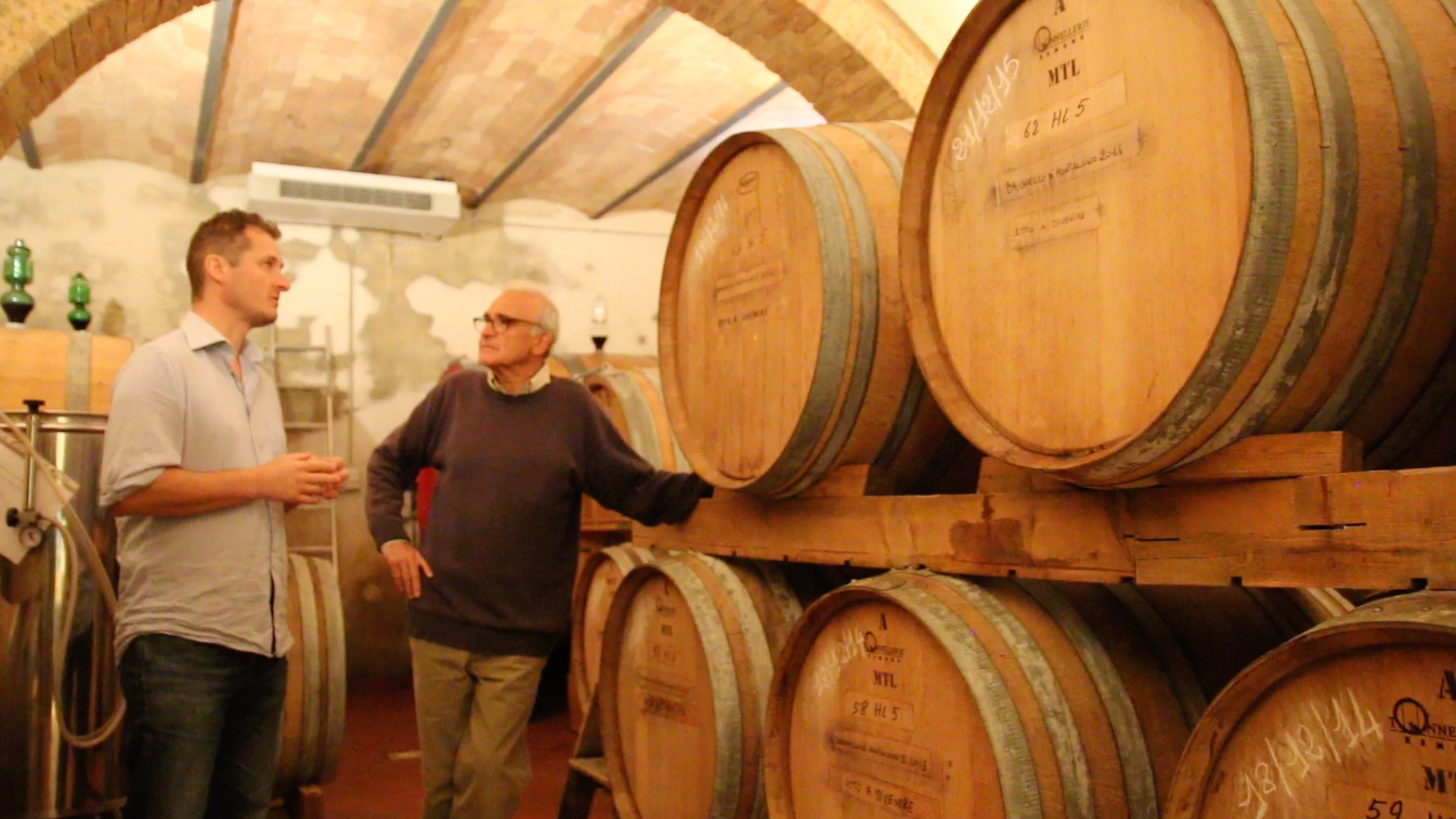
Oh you don't deserve it? Yeah, I think you do, absolutely.
Montalcino is a very large surface area, with many different soils and altitudes. There's a huge variety of vineyards. Some people want to divide the Montalcino area like in Burgundy. Do you think that would make any sense?
Of course, of course, we need to select, to study the differences. Because of the richness of Montalcino, it has hundreds of different kinds of soils, of clime, of micro-clime [micro-climates, now referred to in this sense as meso-climates]. It has differences in levels [in altitude above sea level]. We range from 600 meters to 100 meters above the sea. The climate is completely different between different areas. We have exposition (exposure to the sun), 360 degrees all around, northern exposition against a completely southern exposition. Rain is different, everything is different.
We have something which is unique to the Montalcino area, but inside of this we have to discover a lot of differences and lot of possibilities to enhance these differences. This is the future of Montalcino. The future of Montalcino is its differences, not in the uniformity of Brunello.
We must focus on hundreds of different Brunellos, from hundreds of difference vineyards, from hundreds of different cru and terroirs.
We must produce different wines from this unique place. This is my idea, I will not live long enough to see it, but I hope that this idea slowly could ...
Guide?
Yes, be a guide in the minds of Montalcino winegrowers. This is very important. This is the future of Montalcino. If not, I’m afraid that Montalcino will lose its fascination, its attraction, and I hope that we will not let this happen.
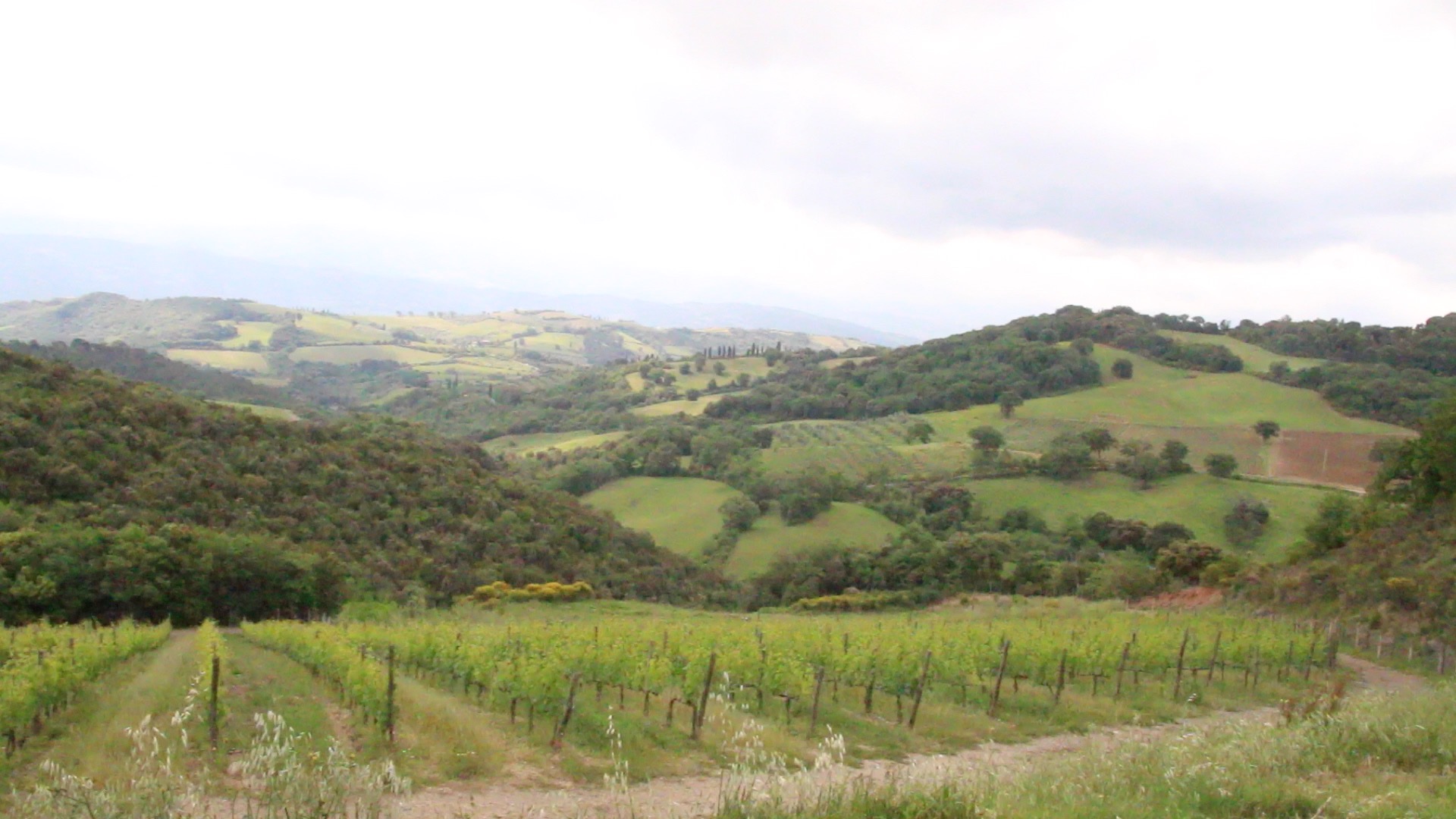
What is the difference between modern and traditional in Montalcino?
The difference between traditional and modern? Doesn't exist! The Brunello is just one. This is true Brunello which is the best interpretation of richness of this grape. I don't understand the difference between... Yes, it has to be an Italian style because all Italian wine has to be an Italian style. This is not about Brunello, all Italian wine has to follow an Italian style, of course. I don't know what is a modern Brunello.
I know that a bad Brunello could be a modern or an old style. We have good Brunello and bad Brunello. The good Brunello is Brunello where the expression of the grape is intact, true. The bad Brunello is the opposite, where is not honoured, it is altered.
Please stop with the modern and the old, it means nothing.
I agree with you. Okay. One final question. Overall, what is your philosophy of winemaking here in Salicutti?
My philosophy of winemaking is linked to my philosophy in the vineyard. The majority of effort, of commitment is in the vineyard. When I succeed in producing perfect quality grapes, I don't need to do anything more, almost nothing more in my cellar.
Winemaking has to be completely simple, not adding, nor subtracting anything to the wine, but to guide the perfect quality of grapes to its destination, just with delicacy. It’s necessary to be delicate in managing wine and let the wine evolve by itself, because the wine has all the intelligence for developing by itself, for becoming something great.
Great wine is not made by the winemaker, great wine is made by itself, that's all.
Monty Waldin was the first wine writer to specialize in green issues. JancisRobinson.com said of Monty’s latest book, Biodynamic Wine (2016, Infinite Ideas Oxford) that “it made me realise I knew next to nothing about biodynamics.” Buy it on Amazon.
